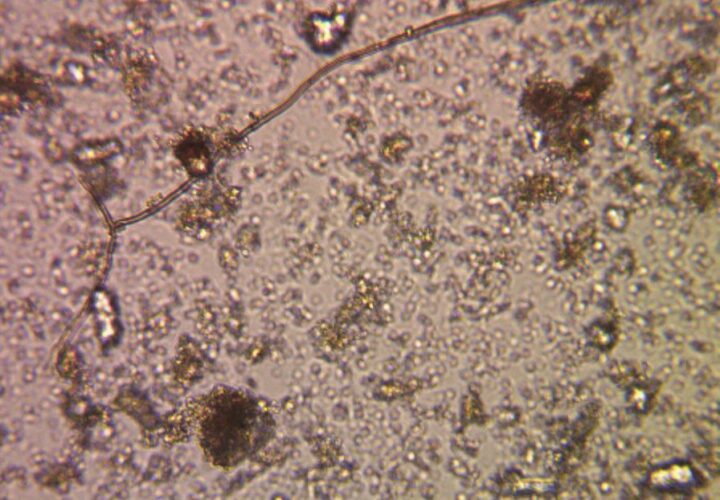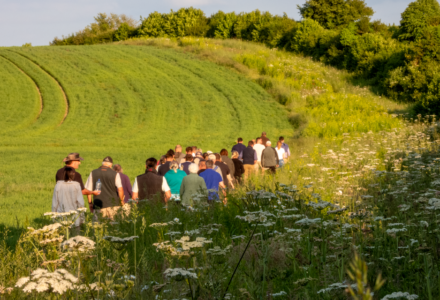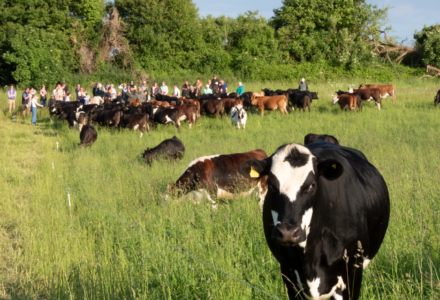Early Re-Genus results promising
At Cranborne we have been trialling a new approach to soil health, working in partnership with Re-Genus to help accelerate our strategy to reduce the use of artificial fertiliser.
Early results are looking extremely promising.
The image below shows our farm standard winter wheat crop on the left hand side, which has received its first dose of fertiliser.

The crop on the right was grown in the same field, but the soil was inoculated with a fungi-rich material. Remarkably, the crop on the right has had no fertiliser applied at all.
The two plants look similar above ground, but the interesting results can start to be seen when we look closely at the roots. The Re-Genus treatment shows far higher levels of biological communication between the plant and the soil, indicated by an active rhizosheath – shown here by the way that the soil is sticking to the root. Soil biology is vital for unlocking nutrients in the soil and making them available to the plant. At Cranborne we are working hard to activate this biology through our practices so it is satisfying to see such good early results.
Early measurement indicates that the Re-Genus treatment is keeping pace with the farm standard without any fertiliser, demonstrating the importance of soil biology and how much potential this innovative product has. The final proof will be at harvest time, but at this moment in time we are very encouraged by the progress we’ve seen.







